Opinion

1. “Hey Twitter, I'm On a Mission...”
Writer and artist Candace Jean asked Twitter to help her identify a mystery attendee at the 1971 International Conference on Biology of Whales — the only woman and only person left unnamed in a group photo, and someone the men present vaguely recalled as “an assistant.” The result: an electrifying public crowdsourcing project, and the learned histories of 3 incredible women.
The fossil fuel lobby preached its gospel in Virginia. Now, black churches are fighting back.
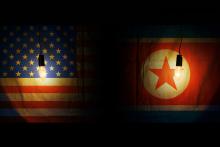
As Trump and Kim Jong-un approach possible conversations, here are 3 truths for American Christians to keep in mind.

As a black woman, my confidence is not just perceived as arrogance, but as intimidating and angry.

Scripture calls us to do the things that lead to peace. Why then do we choose the path of violence?
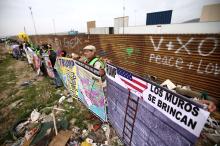
President Trump, I personally invite you to also come down to the borderlands with me in Tijuana and San Diego and meet the people directly impacted by the stroke of your pen. I am a co-founding director of Global Immersion, and one of our primary organizational initiatives involves having cross-sector leaders from around the country come to the border to see the human face of immigration and build a set of tools for how to better care of the “stranger among us,” as my sacred text (the Bible) mandates.

Marjory Stoneman Douglas set an astonishing example over the course of her life of the power that one dedicated voice can have. With her words and her actions, she fought for a better world for women, for people of color, for those living in poverty, and for the earth itself. We all — not just Floridians — inhabit a world made better by her.

How do we take the limits off the imagination of black children in Chicago? Part of the answer is to create more Afrofuturism. Let our children dream, and dream big.

“Austin,” which opened to the public on Feb. 18, during the season of Lent, has so far drawn 12,000 visitors to the grounds of the Blanton Museum of Art at the University of Texas at Austin. Many of them are, no doubt, nonbelievers too. But even they have taken note of the work’s spiritual leanings.

There is a tragedy happening within U.S. denominations and religious institutions that cripples the witness of the church in the wider society. Bonds of Christian fellowship are being torn asunder by the debate over the inclusion of LGBTQ people in the church, creating untold pain and suffering for many LGBTQ people and others, while sharpening disunity in Christ. And all this is unnecessary, and unfaithful.

A Wrinkle in Time is bright and colorful, not only applying broad imagination to its settings and costumes, but also daring to extend that same concept to its diverse cast. In addition to the multiracial identities of the three Mrs., Meg is biracial and the adopted Charles Wallace is asian. These choices clearly come from a very personal place for DuVernay, and it’s lovely to see that diversity communicated with earnestness and intention. A large part of the film’s message is self awareness and self-love and it’s important that this message comes to audiences through the experience of a young girl of color, addressing universal pre-teen feelings of awkwardness or self esteem issues through a character who relates to more than just a white audience.

In the midst of the Time’s Up movement, we agree that now is the time for equality and to end sexual and gender-based violence once and for all. While the entertainment industry is doing a great job of raising awareness, other groups need to step up and enact change. A critical group that must be involved is the faith community.

1. 15 Remarkable Women We Overlooked in Our Obituaries
Since 1851, The New York Times has published thousands of obituaries: of heads of state, opera singers, the inventor of Stove Top stuffing and the namer of the Slinky. The vast majority chronicled the lives of men, mostly white ones; even in the last two years, just over one in five of our subjects were female. The Times’ new project, Overlooked, aims to correct that.
2. Black Girl Power: Exploring Love and Rage in Ava DuVernay’s A Wrinkle in Time
“Little black girls deserve a hero all their own. Someone who looks like them, worries like them, fights like them, and, in the end, saves them. While this world may demand its specific service of black heroines, black girls deserve themselves.”
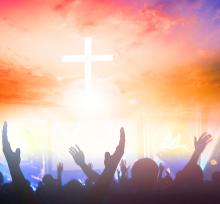
Spiritual bypassing is not exclusive to Christians or white people, but I would argue we are the most guilty collective of practicing and enforcing it. We maintain systems and cultures that coerce all of us to assimilate into the practice of bypassing pain. In our anger-phobia, we shame oppressed people into the compliance of feigning joy. Worse than that, we tell them and ourselves — either simplicity or explicitly — that justice work is a distraction from the gospel message.

I return to Sojourners — nearly a decade since I served as the Senior Political Director, and after a great deal of prayerful discernment — inspired by the courage and boldness of a new generation of young activists. The protests and activism of the Black Lives Matter movement has forced the issue of racialized policing and police violence onto the public agenda. Student survivors of the horrific massacre at Marjory Stoneman Douglas High School this past Ash Wednesday continue to speak out with such moral clarity about the need to address the fraudulent and pernicious state of gun violence in our nation. Dreamers are reframing the narrative and debate around immigration with their personal testimonies and bold advocacy to expand opportunity and justice, not simply for themselves but for all immigrants in this nation.
Every International Women’s Day, we compile a roundup of Christian women who are making and shaping history right now. From advocating for immigration reform, to battling racism and abuse in the church and through the church, women are leading the way. Below, the women we are honoring this year share with us their hopes, heroes, and blessings for 2018.
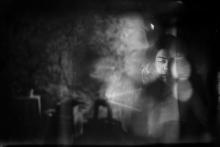
Losing a loved one to murder is unlike any other type of loss. Not only are we robbed of that person and of what could have been, we are robbed of peace, forever haunted by how our loved ones died. There is a level of brutality and fear that comes with homicide. When someone is sick, we can understand the illness and we usually have time to process and say goodbye. But homicide comes with so many questions and finding answers becomes a full-time job.
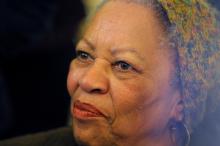
Morrison’s wisdom and her immense love for blackness — a heritage, but also a color often used to describe evil and evoke disgust — have been blessings to the world for almost half a century. She has written and published eleven novels, numerous children’s books and nonfiction books, two plays, a libretto for an opera, and despite being 87-years-old, she shows no signs of stopping.
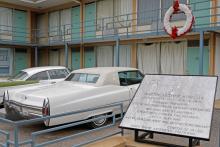
The deepest roots of The Shalom Center’s work to revitalize the deep connection between the Spirit and social justice were my weaving in 1968 and ’69 a new kind of Passover Seder — the Freedom Seder. My sense of the need to create the Freedom Seder grew from the deep crisis of American democracy in those years. For me, one crucial aspect of that crisis was the murder of Dr. Martin Luther King on April 4, 1968. It was an act of violence ending the life and disrupting the work of our foremost teacher of nonviolence.

When Europeans “founded” America, they took any land that wasn’t “Christian” and claimed it “for God” — which meant that they were given full reign by the church to decide who looked saved and who didn’t. The Doctrine of Discovery gave them full permission to oppress, and because of it, my own Potawatomi ancestors walked the Trail of Death from the Great Lakes region of the United States into Kansas and Oklahoma.

My bookshelf represents a poverty of influence. So for Lent, we — two white middle-class millennial women — decided to fast from white voices and white-dominated media. For 40 days, we’re committing to only read books, watch films, and listen to podcasts written or directed by women of color.